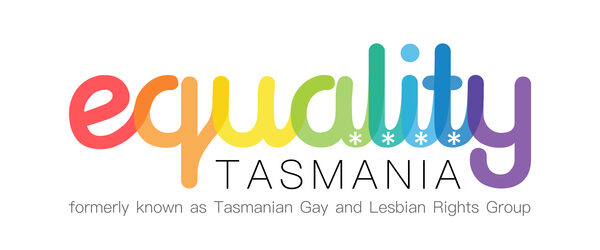Equality Tasmania has responded to the Cass Review of gender health care with the following statement by President, Rowan Richardson. We do not believe the Review is relevant to Tasmania. A similar inquiry is not required here. The Cass Review does not diminish the case for urgent action to end conversion practices.
GENDER DIVERSE YOUNG PEOPLE NEED SUPPORT NOT A CULTURE WAR
A review of health care for young trans people, commissioned by the UK Government and conducted by Dr Hilary Cass, has been released to much applause from those who oppose such care.
They said the Cass Review proves that puberty blockers, and feminising and masculising hormones, should not be given to young people experiencing gender dysphoria.
To clarify, puberty blockers slow down puberty so the young person and their family have time to consider their options. Gender dysphoria is the distress someone feels when their gender doesn’t match the sex they were assigned at birth.
Despite the fanfare, the Cass Review has been criticised for overlooking the many studies that demonstrate the improved mental health puberty blockers or hormones can provide for many dysphoric young people.
Researchers say the double-blind, randomised control methodology Dr Cass used as a benchmark for credible research is unethical and impossible to implement when it comes to puberty blockers.
They point out she does not apply that standard to the use of puberty blockers for other conditions like precocious puberty or endometriosis where they have been safely prescribed for young people for decades.
Dr Cass has responded to this criticism by explaining that she does not support a blanket ban on puberty blockers and hormones for young people, but prefers a more individualised approach.
As a number of Australian paediatricians have pointed out, this is exactly the approach currently taken in Australia, compared to the more retrograde approach in Britain.
In the lead up to the Cass Review, UK services such as the controversial Tavistock Clinic prioritised medical over psychological treatments for gender dysphoric young people.
In contrast, Australian gender clinics take a more holistic and multi-disciplinary approach involving psychiatrists and child psychologists as well as endocrinologists, and with mental health services more closely integrated into gender care.
We also have more gender clinics with less pressure to move young people through.
In Australia there are significant hurdles to the prescription of puberty blockers or hormones. These include multiple assessments by medical and psychological professionals, and permission from both parents, or from a court if this is lacking.
There are also clearer guidelines for distinguishing between same-sex attracted, gender dysphoric and non-binary young people.
The other Australian innovation is longitudinal research which demonstrates lower levels of detransitioning than are commonly cited by critics of gender care.
Detransitioning is when someone who seeks gender affirming care later changes their mind, often because of discrimination from family and society.
According to recent West Australian research, 5% of young people changed their minds before or during their clinical gender assessment. Of the group who initiated medical treatment like puberty blockers, only 1% changed their minds.
The Cass Review has prompted calls for a similar review in Tasmania and nationally.
But those making such calls can’t provide any evidence of systemic problems with our gender clinics like the ones identified in Britain.
There is also a legitimate fear that such inquiries will just become platforms for the kind of anti-trans hate that already proliferates on social media.
This is why the push for inquiries has been knocked back in other states and in the federal parliament (twice).
The Cass Review has also prompted calls to slow down a state ban on conversion practices, but there is also no need for this.
The Tasmanian Law Reform Institute has recommended legislation which gives priority to whatever clinical guidelines govern gender care.
This model means there would be no risk that medical professionals acting within clinical guidelines could be accused of conversion.
Hilary Cass herself has stated that there should be zero tolerance for conversion practices and that she is keen for legislators to enact a ban asap.
Our gender services aren’t perfect.
A survey commissioned by Equality Tasmania in 2022 found the state’s Gender Service has overly-long waiting times and more staff training is required.
But there is no need for the overreaction we’ve seen since Cass.
Our young trans people and their families need support and understanding, not another divisive culture war.
Rowan Richardson is the President of Equality Tasmania and a transgender man
More here:
